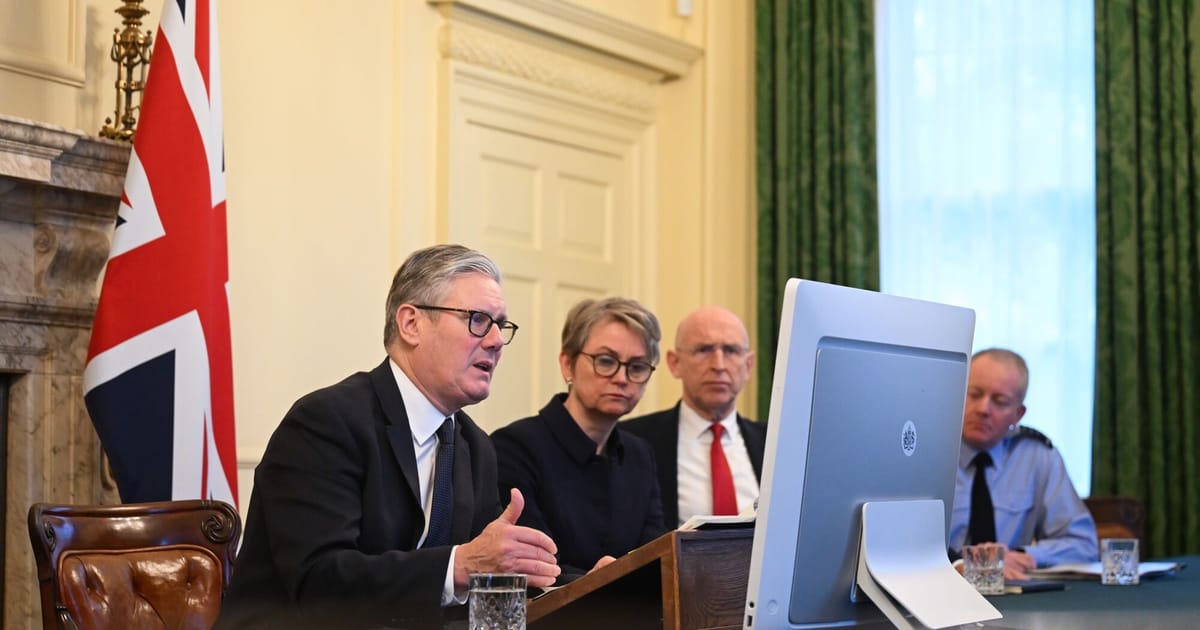‘Fallback positions’
The coalition, a loose alliance of nations whose members include France, Germany, Britain, Belgium, Canada and Turkey among others, sprung up earlier this year amid deep European concern about America’s ongoing support for Ukraine.
Its members have promised varying degrees of support — including, in the case of France and the U.K., a commitment to deploy national troops on the ground to police the deal and deter further Russian aggression.
The coalition has already floated a “reassurance force” providing air and naval support to Ukraine, as well as a focus on regenerating the country’s armed forces. Starmer’s spokesman told reporters Tuesday that the U.K. was “still willing to put boots on the ground” to secure peace. Macron, while stressing that the force would be “far from the frontline,” floated a presence “in fallback positions in Kyiv or Odessa.”
“We’ll have a air reassurance force, which will not be based in Ukraine, but possibly in neighboring countries… leading operations linked with the Ukrainian air force to secure its airspace,” he told French radio.
With one eye on a wary domestic audience, Macron added: “We shouldn’t sow panic among the French, because there are a lot of people… who want to scare us, and who are saying that we’re going to immediately send troops, that’s false.”
Germany has been somewhat more circumspect about its involvement. Foreign Minister Johann Wadephul this week pointed to an existing German brigade in Lithuania, saying “we are more involved in the entire region than almost any other member of NATO” and that this is “sufficient.”
Major questions remain too about how the U.S. really sees its own role and where European forces could make a tangible difference. Russia has openly trashed a Europe-backed plan for peace.
